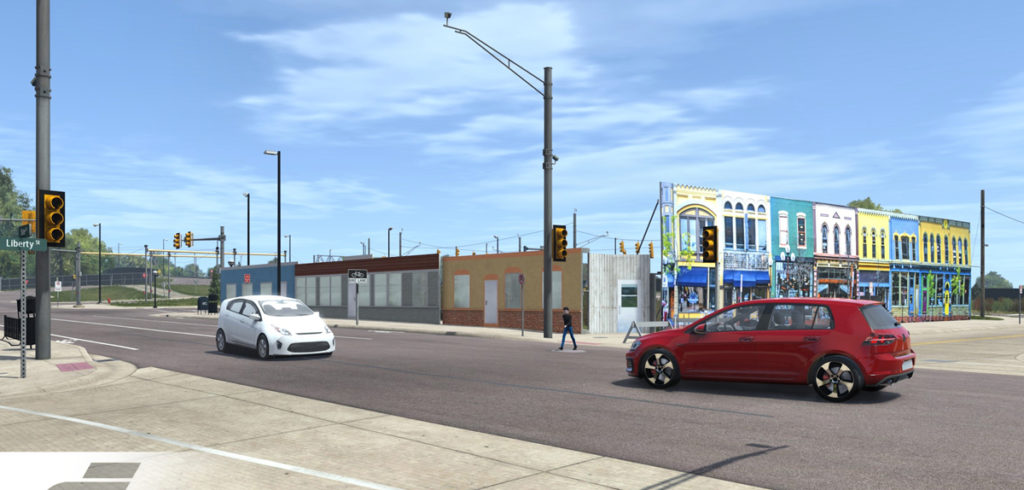Simulation software company rFpro has a digital twin of Mcity to help manufacturers and technology suppliers to speed up development.
Creating a digital twin of the University of Michigan’s facility to test connected and automated vehicles will help customers prepare for each visit to the real-world site for simulation.
Tests at the track can also be used to validate the simulated tests, ensuring that the simulation testing is accurate and reliable.
The digital twin has different roadside objects and materials to ensure accurate simulation of radar, lidar and camera sensors.
rFpro used survey-grade lidar equipment to capture a digital copy of the environment accurate to less than 1mm.
Road layouts, lanes and junctions are described inside rFpro in OpenDRIVE, IPG ROAD5 and SUMO formats, the main industry standards for road network descriptions.
The 32-acre site at the University of Michigan has more than 16-acres of road and traffic infrastructure.
Mcity is one of the first purpose-built autonomous proving grounds, simulating a broad range of complexities vehicles may encounter on the road.
Huei Peng, director and Roger L McCarthy professor of mechanical engineering at the University of Michigan, said, “The Mcity Test Facility was purpose-built for safe, repeatable testing of connected and automated vehicles [CAVs] and technologies in a controlled environment. The development of CAVs is safer, faster and cheaper by strategically combining controlled tests and simulations, rather than relying too heavily on public road testing.”
A video of driving around the virtual Mcity can be found here.


